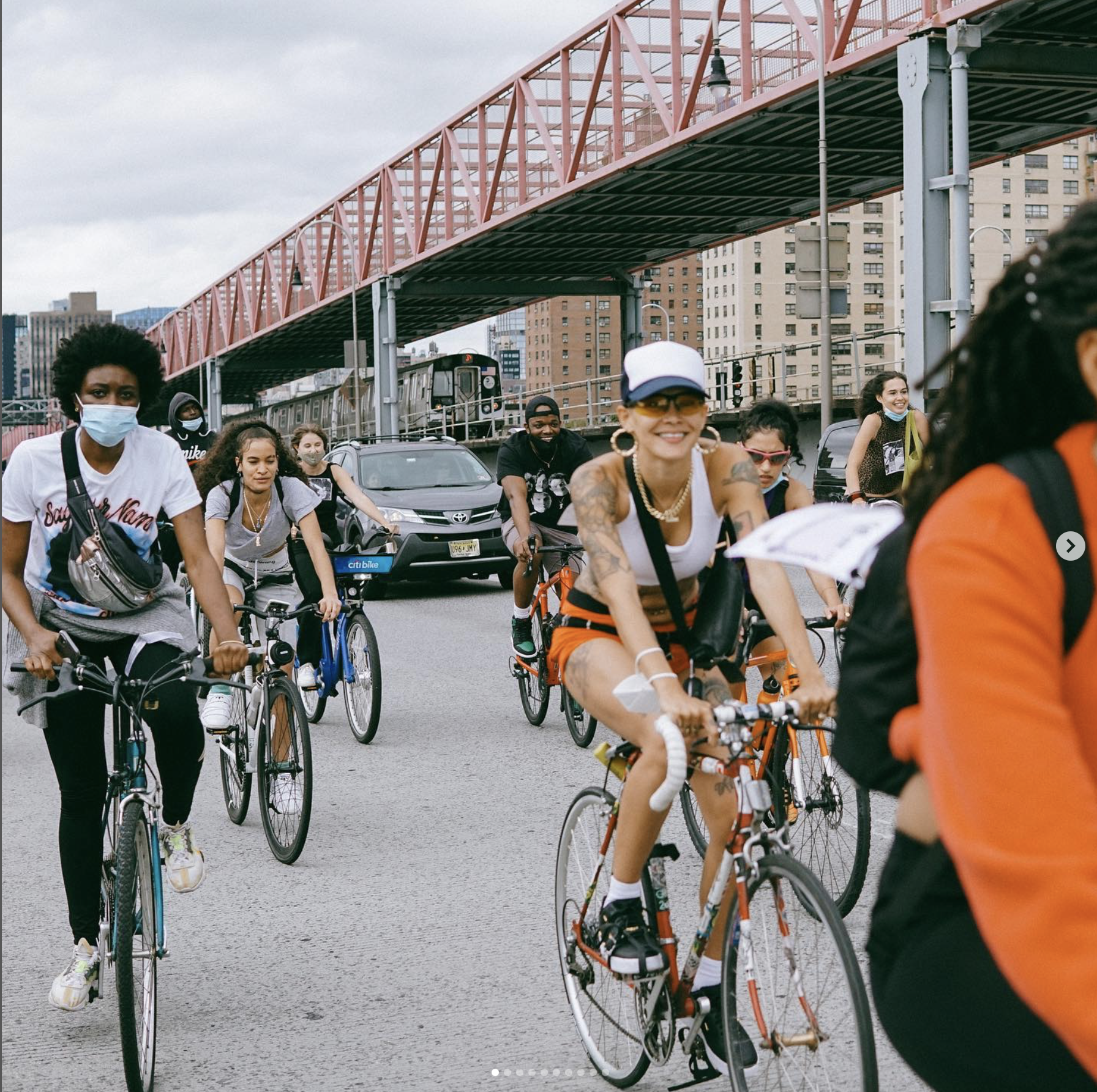Liz Jose, founder of WE Bike NYC, an organization for women and female-identifying cyclists, organized a bike ride of 11 women from NYC to DC in 2014. They successfully braved the blistery February elements, snow-covered paths, and brutal winds. But, it was only after reading a Washington Post article about the ride she helped organize did she learn that those 11 riders were following in the pioneering footsteps of 5 black women who made a similar NYC –> DC trip in 1928.
Yes. You read that right. 1928.
In an interview with The Bicycle Story she tells Kevin MacLeod,
“I was living this world of feminist bikey stuff – and I didn’t know about it – that points out a huge whitewashing of the history of biking and the history of feminist biking.”
There is an overwhelming whiteness in the history of cycling. The story of these 5 cyclists encourages us to rethink who cyclists were, who cyclists are, and who cyclists can be.
Marya McQuirter’s research and scholarship of the women – Marylou Jackson, Velma Jackson, Ethyl Miller, Leolya Nelson and Constance White—who biked from New York City to DC in 1928 forces us to examine popular narratives about segregation in and outside of biking. In the late 1920s, black people were fleeing white terror in the south – but here are 5 women doing the exact opposite – riding into the south – for pleasure. It gives us a glimpse of how people push back against racial and gender boundaries through “leisure” activities.

Recreational activities are not often grouped in with protests and political action. Except when black people engage in them. Swimming in pools, Barbeques, Bird Watching, Jogging and Cycling while black immediately turns from pleasure to political. This is part of the reason that bikers, cyclists – and “bicycle politics” are associated with “white people sh!t” or even more exclusionary “rich white people sh!t” but as Jody Rosen points out in The Bicycle as a Vehicle of Protest
“transportation issues are social-justice issues. Black Lives Matter is a moral crusade about freedom of movement and who is at liberty to go where…The mobility of black people is additionally restricted by a system that construes their mere presence in many public spaces as trespassing, a de-facto crime, punishable by imprisonment or even death.”
Rosen also argues that bicycles represent a political issue for black and brown communities but also that for centuries bicycles have been “an emblem of freedom.”
A bike could carry you five or ten or two hundred miles…To an authoritarian government or an occupying army, the bicycle was a menace, a tool of resistance that could be used by dissenters to sneak up and speed off, to organize and mobilize and elude.
In an article by Adam Mahoney, In Chicago, Cyclists in Black Neighborhoods and Over Polocied and Under Protected”, Mohaoney references Jesus Barajas’ 2021 study which found:
“that from 2017 to 2019, bicyclists riding in Chicago’s Black neighborhoods were eight times more likely to be ticketed by police than those riding in white neighborhoods.”
Marz Lovejoy, community activist and organizer of the NYC #andstillweride bike ride celebrating Black women, in an article for Vogue by Liana Statenstein, How NYC’s Most Meaningful (and stylish) Bike Ride Came Together describes why these events are so important to her:
The cause is a personal one. I could probably count on one hand how many Black or brown girls or women I saw on bikes my whole time in New York. That was a big inspiration and a driving force to put this event together.

Kevin MacLeod concludes his podcast, The Bicycle Story, with the assertion that the 1928 ride is an important reminder that the stories we tell have consequences. When the story is “bikes are for kids” – they are relegated to toy stores and not seen as valid forms of transportation. When the story is that “bikes are for men” – the industry is by and for men.
Change doesn’t come from picking a narrative, but the stories we tell become truths and impact the work done to make change.
-Kevin MacLeod
What is your bike story?


